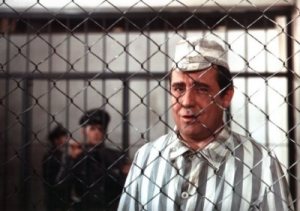 The cinema of Hungary, like other Central European states, is recognised as carrying a strong tradition of both realism and social commentary. This has been shaped by the political events which swept the country after the Second World War: the authoritarian state led by Mátyás Rákosi and the Hungarian Communist Party and the struggle for liberation in 1956, which still plays a large part in the Hungarian identity today. The early years of the People?s Republic of Hungary (1949-1989) were categorised by widespread oppression, show trials and politically-motivated purging of numerous institutions; and this has been a topic of exploration for a multitude of directors in the years following the revolution. This strength of this theme can be seen in the release of films on the subject well after it had passed, and into features released after the transition to democracy in the late 1980s and early 1990s. Indeed, films reflecting on this period of history have become revered both in the national context and abroad, winning prizes on the international circuit and achieving cult status amongst sections of the population.
The cinema of Hungary, like other Central European states, is recognised as carrying a strong tradition of both realism and social commentary. This has been shaped by the political events which swept the country after the Second World War: the authoritarian state led by Mátyás Rákosi and the Hungarian Communist Party and the struggle for liberation in 1956, which still plays a large part in the Hungarian identity today. The early years of the People?s Republic of Hungary (1949-1989) were categorised by widespread oppression, show trials and politically-motivated purging of numerous institutions; and this has been a topic of exploration for a multitude of directors in the years following the revolution. This strength of this theme can be seen in the release of films on the subject well after it had passed, and into features released after the transition to democracy in the late 1980s and early 1990s. Indeed, films reflecting on this period of history have become revered both in the national context and abroad, winning prizes on the international circuit and achieving cult status amongst sections of the population.
Read more at kinokinomozi.wordpress.com




